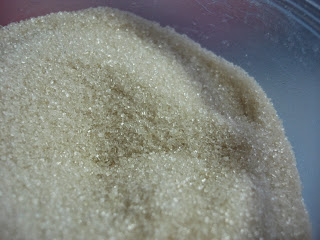Consumption of Artificial Sweeteners Linked To Choosing High-Calorie Alternatives In The Future
It is hard to fool the brain by providing it with ‘energyless’ artificial sweeteners. The results of a new study indicate that our pleasure in consuming sweet solutions is driven to a great extent by the amount of energy it provides. The greatest rewards in the brain are attributed to sugars compared to artificial sweeteners which offer only short-term pleasure at a huge health cost.
Fooling The Body At The Expense of Appetite
Using artificial sweeteners may actually throw off the body’s ability to monitor how many calories we consume. Rats fed an artificially sweetened diet tend to overeat when given naturally sweetened high-calorie food compared with rats that had never consumed artificial sweeteners.
Researchers also found that the thickness of a sweetened drink seems to interfere with rats’ abilities to keep their calorie consumption under control.
“We propose that humans and other animals use sweetness and viscosity to help estimate the caloric content of the foods they eat, with sweeter and thicker foods signaling more calories and less sweet and thinner foods signaling fewer calories,” said Dr. Terry L. Davidson of Purdue University in West Lafayette, Indiana.
Widget not in any sidebars
Along with Purdue co-author Dr. Susan E. Swithers, Davidson hypothesized that consuming foods and beverages that are either low-calorie but very sweet or high-calorie but very thin may interfere with the ability to rely on taste and thickness to regulate caloric intake.
Previous studies have shown that regular consumption of artificial, low-calorie sweeteners may actually cause people to gain more weight than similar consumption of sugar. According to one study conducted by researchers from Purdue University and published in the journal Behavioral Neuroscience found that rats given saccharin actually gained more weight than the rats in the sugar group.
“There’s something about diet foods that changes your metabolic limit, your brain chemistry,” said Dr. Marie Savard, medical contributor for ABC News.
Choose Low-Calorie Now At The Expense of High Calorie Later
Professor Ivan de Araujo, who led a study at Yale University School of Medicine USA, says: “The consumption of high-calorie beverages is a major contributor to weight gain and obesity, even after the introduction of artificial sweeteners to the market. We believe that the discovery is important because it shows how physiological states may impact on our choices between sugars and sweeteners.
“Specifically, it implies that humans frequently ingesting low-calorie sweet products in a state of hunger or exhaustion may be more likely to ‘relapse’ and choose high calorie alternatives in the future.
The study identified a specific physiological brain signal that is critical for determining choice between sugars and sweeteners. This signal regulates dopamine levels — a chemical necessary for reward signalling in the brain — and only arises when sugar is broken down into a form where it is usable as fuel for cells of the body to function.
 Research was performed in mice, using a combination of behavioural testing involving sweeteners and sugars, whilst measuring chemical responses in brain circuits for reward. The researchers believe the findings are likely to reflect in humans.
Research was performed in mice, using a combination of behavioural testing involving sweeteners and sugars, whilst measuring chemical responses in brain circuits for reward. The researchers believe the findings are likely to reflect in humans.
Professor de Araujo says: “According to the data, when we apply substances that interfere with a critical step of the ‘sugar-to-energy pathway’, the interest of the animals in consuming artificial sweetener decreases significantly, along with important reductions in brain dopamine levels.
“This is verified by the fact that when hungry mice — who thus have low sugar levels — are given a choice between artificial sweeteners and sugars, they are more likely to completely switch their preferences towards sugars even if the artificial sweetener is much sweeter than the sugar solution.”
Now that the team know that dopamine cells are critical in sugar/sweetener choice, they hope to identify the associated receptors and pathways in the brain.
Aspartame a Poison Unparalleled
Aspartame via ingestion into the digestive tract, is made into some ten other poisonings by the digestive processes, and then excepting that which is delivered directly to the pancreas, they are transported straight to the liver via the portal vein, where they then are very partially dealt with, and partially reprocessed.
Artificial sweeteners are 200 times sweeter than regular sugar. In lab studies rats were more addicted to aspartame than cocaine.
Former McGill University researcher Dana Small specializes in the neuropsychology of flavour and feeding at Yale University in New Haven, Conn. Small said there’s mounting evidence that artificial sweeteners have a couple of problematic effects. Sugar substitutes such as sucralose and aspartame are more intensely sweet than sugar and may rewire taste receptors so less sweet, healthier foods aren’t as enjoyable, shifting preferences to higher calorie, sweeter foods, she said. Small and some other researchers believe artificial sweeteners interfere with brain chemistry and hormones that regulate appetite and satiety. For millennia, sweet taste signalled the arrival of calories. But that’s no longer the case with artificial sweeteners.
 “The sweet taste is no longer signalling energy and so the body adapts,” Small said in an interview with CBC News. “It’s no longer going to release insulin when it senses sweet because sweet now is not such a good predictor of the arrival of energy.” The chemical change is the same reason why “when you brush your teeth and then drink orange juice, it tastes bad,” said study co-author Christine Swoboda, a doctoral candidate in nutrition at Ohio State University.
“The sweet taste is no longer signalling energy and so the body adapts,” Small said in an interview with CBC News. “It’s no longer going to release insulin when it senses sweet because sweet now is not such a good predictor of the arrival of energy.” The chemical change is the same reason why “when you brush your teeth and then drink orange juice, it tastes bad,” said study co-author Christine Swoboda, a doctoral candidate in nutrition at Ohio State University.
Diet soda causes dehydration, weight gain, mineral depletion, diabetes and caffeine addiction, research shows they’re also responsible for an increased risk of vascular events such as stroke, heart attack, and vascular death.
Artificially sweetened soft drinks are marketed as healthier alternatives to sugar-sweetened beverages, due to their lack of calories. However, past research has shown very serious long-term health consequences due to highly toxic additives and artificial sweeteners such as sodium benzoate, acesulfame potassium, sucralose and high-fructose corn syrup.
Men who drink just one 300ml can of soda per day are much more likely to require treatment for a serious form of cancer than those who never consumed the drink. One soda a day can raise aggressive cancer risk by 40 percent.
One study of more than 66,000 women found those who drank artificially sweetened drinks were more 60 percent more likely to develop diabetes than those who indulged in regular versions of the same beverage.
Natasha Longo has a master’s degree in nutrition and is a certified fitness and nutritional counselor. She has consulted on public health policy and procurement in Canada, Australia, Spain, Ireland, England and Germany.



